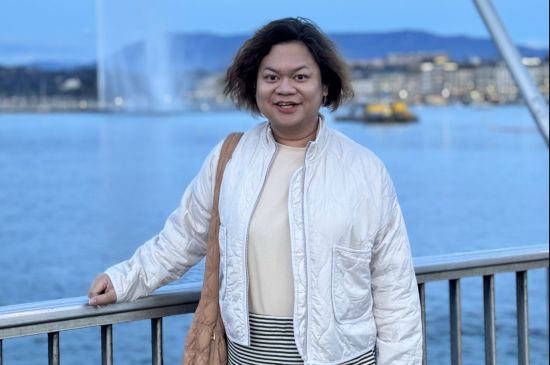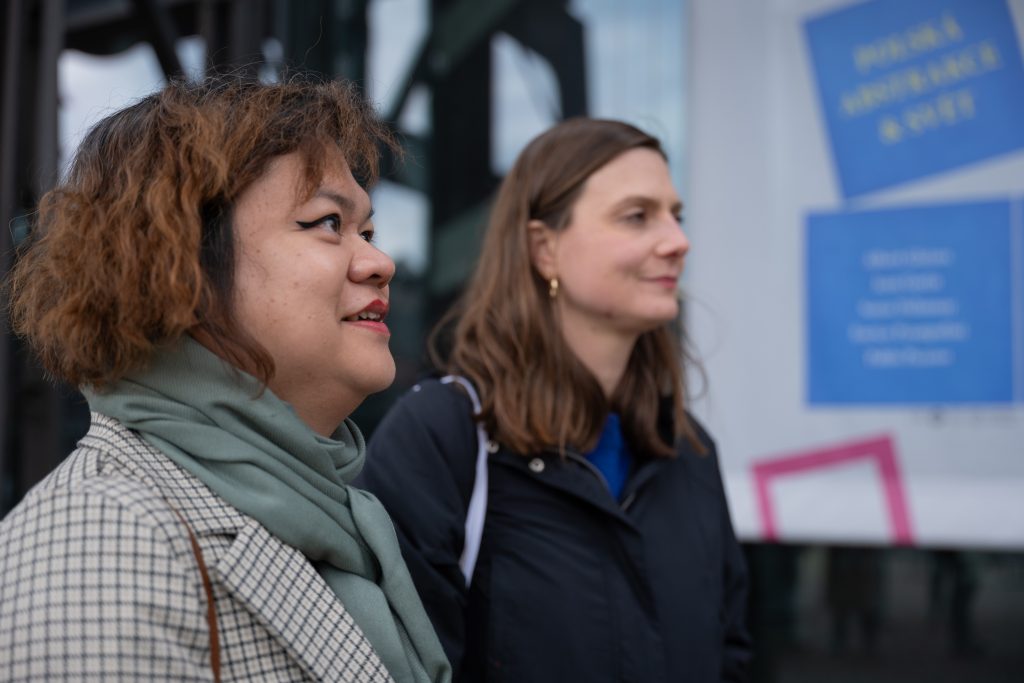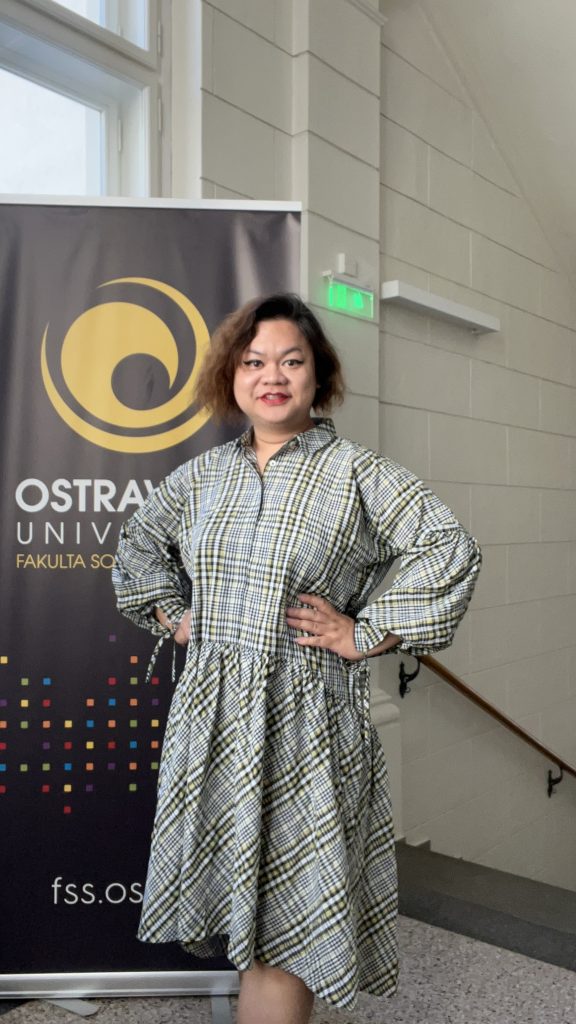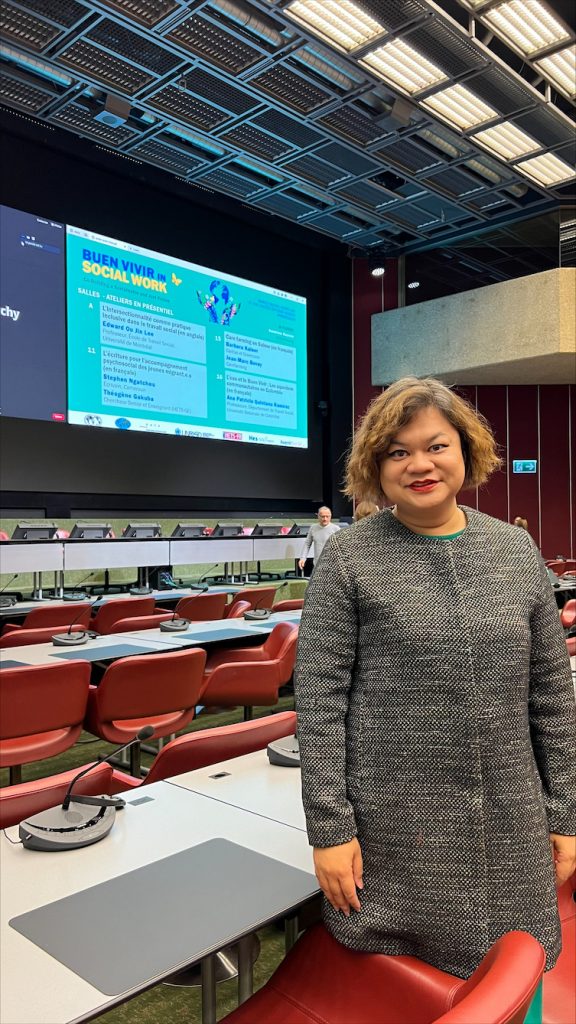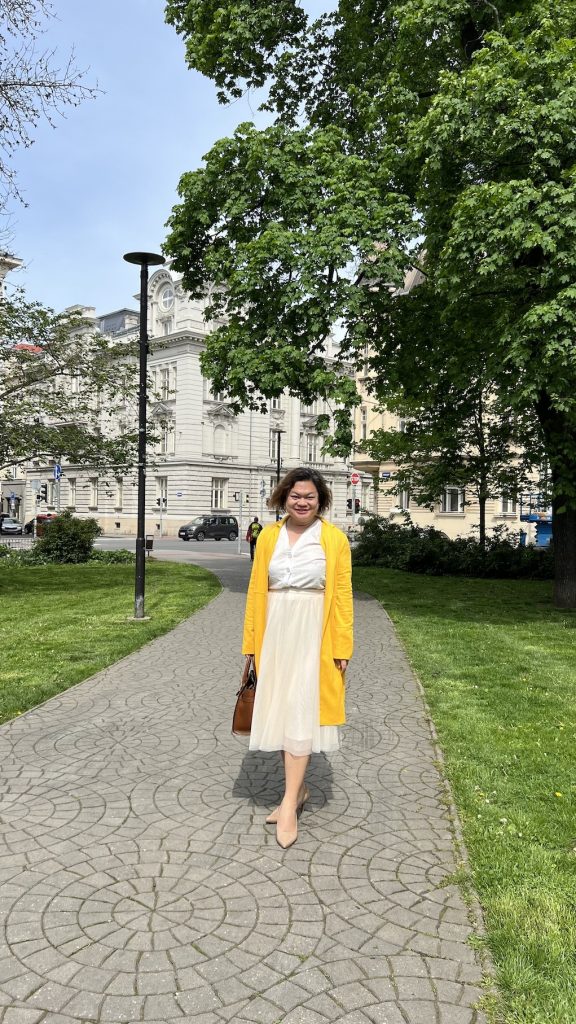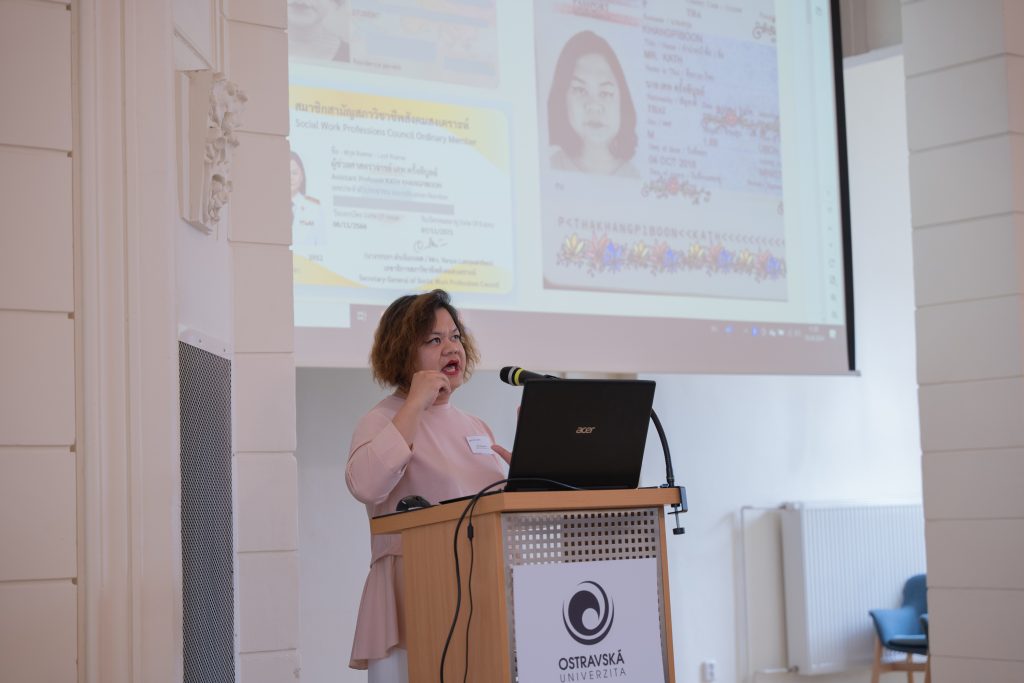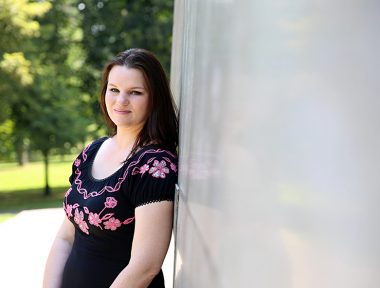We met again with Kath Khangpiboon, a PhD student of social work at the Faculty of Social Studies, University of Ostrava, after a few months of her move to Ostrava. We talked about how she is doing, her life in her new country and city, the challenges she faces, as well as about her PhD studies. The interview is below—part II—on her impressions and insights.
How are you doing?
I’m doing great this spring! The fresh air and sunny days are invigorating. I’ve been keeping busy and enjoying some downtime as well.
What do you think of your early days in the new country and new city?
Adapting to my new city has been an exciting journey. Meeting people and making friends has been a new experience, especially as the only Asian in my community. I’m thrilled to learn about new cultures and vibes. Finding my place took time, but I’m in a great environment near Garden Park and the Zoo, within a reach of convenient transportation for getting around, whether to the Faculty or Prague.
What are the biggest challenges?
The language barrier is my biggest challenge, pushing me to learn more to understand daily life, culture, art, history, and social interactions.
What did you have to get used to the most?
Online delivery has become my new norm, from ordering food to receiving groceries at my doorstep. It’s convenient, saves me from carrying heavy bags, and often comes with great discounts.
What were you surprised about?
I’ve enjoyed attending social events like the ballet at the theatre and an ice hockey world championship game in Ostrava. These activities have enriched my experience, and I’ve found it interesting that beer is reasonably priced and a popular way to connect with people.
How do you see the approach of Czechs to foreigners?
Kids love talking to me, which I enjoy as it reminds me of the importance of understanding multicultural and social dynamics. Although I don’t speak Czech, I learn a lot from observing non-verbal cues and behaviours in cafes, restaurants, shopping malls, and my community.
How often do you visit your home country? Are you homesick?
I went back to Thailand once this year to bring back more things. I’m not really homesick because I keep busy with activities, meet people from various countries, and keep in touch with family and friends through social media.
How are your studies going? Is there anything new in your research?
My studies are going well, thanks to the support from my advisor, tutor, and PhD buddy. I recently presented at a spring school of social work, which was a great opportunity to meet other students across Europe and receive valuable feedback, enhancing my academic growth.
You’re a lecturer at a Thai university. What are the biggest differences between studying in Czech Republic and Thailand and the overall educational system?
I’ve gained insights into international education and joined a class with Erasmus students on gender and social work. It’s clear that students everywhere aspire to be social change makers. While social work addresses similar issues in both countries, the collaboration between the global south and north remains a challenge.

Assistant Professor at Thammasat University is now a PhD student at the Faculty of Social Studies
Také čtěte
Have you been surprised by anything in your PhD studies?
The support system for PhD students has been surprising. Seminars, funding opportunities, program coordinators, and international relations make my study journey smooth and progressive, emphasizing a collaborative approach.
How do you find studying in English in the Czech Republic? Are there any language barriers?
With resources like Liberty and support from professors, I don’t feel a significant language gap. However, I continue to build my language capacity to ensure I can conduct my research confidently.
You participated in several international conferences all over the world where you represented our Faculty of Social Studies. Could you share some experiences with us?
Representing the University of Ostrava, I attended conferences like the UN World Social Work Day in Geneva and the World Social Work Conference in Panama. In Geneva, I met international professionals and had the chance to discuss with Professor Edward Ou Jin Lee from the University of Montreal. Visiting the University of Panama’s Social Work Department was also a highlight. These experiences made me proud to represent our university on an international platform.
What are your plans for the upcoming months?
I need to submit my PhD tasks by August and plan my studies for the next year. I’m happy to be on track with my PhD study plan for 2023-2024.
I’ll mention several words at the end of our interview. Please tell me the first thing that pops into your mind.
Ostrava:
Ostrava strikes me as a place with a rich industrial history that’s now evolving with cultural and international diversity. It is fascinating to consider how communities address social inclusion and reflect broader societal changes.
University of Ostrava:
University of Ostrava is a hub for academic exploration and potential advocacy in social sciences. I’d like to know how their programmes, particularly in Social Work, empower students to effect social change.
Doctoral degree:
Doctoral degree is an intense commitment to deepening one’s expertise and research skills. It represents a significant journey in advancing knowledge and developing solutions to societal issues, which is close to my heart.
Exam:
Exams are not merely academic evaluations but key moments that test our understanding and strength. They’re opportunities to reflect on our growth and to identify areas for further exploration and learning.
Presentation:
Presentation offers a platform to voice findings and insights, which is critical for advocacy and education. It allows us to share our passion and drive discourse, potentially influencing public policies and perceptions.
Social Work:
Social Work is fundamentally about justice, equity, and improving community welfare. It aligns with my work as it involves understanding diverse needs, advocating for marginalised groups, and striving towards an inclusive society.


 5 min.
5 min. 